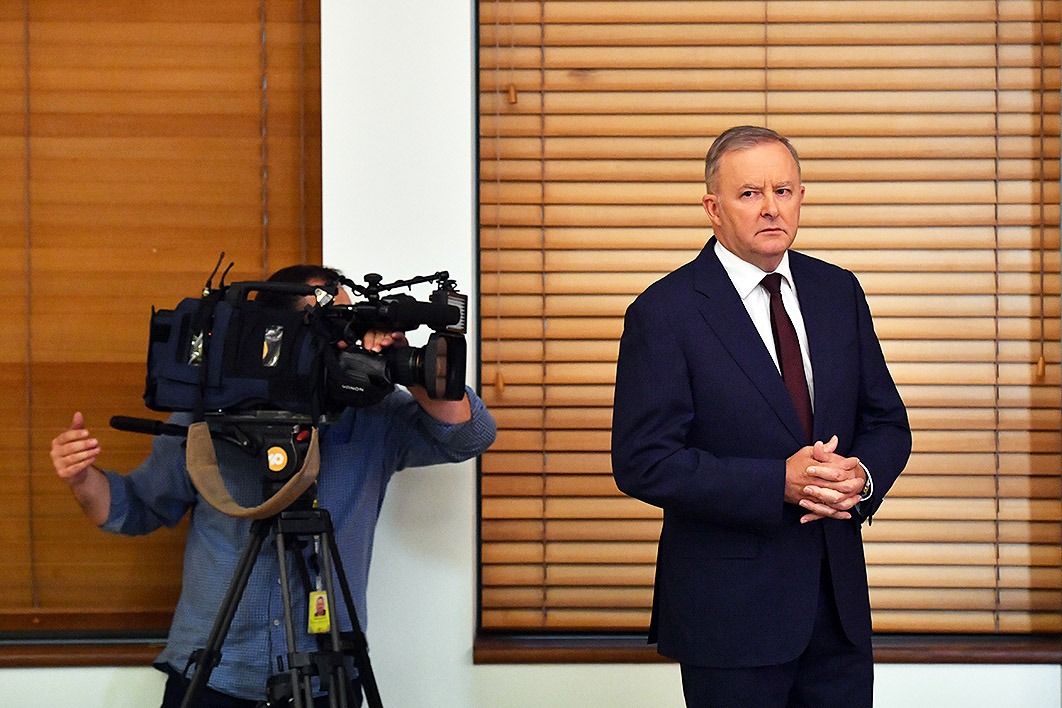The smart money is on the Morrison government taking advantage of its Covid-heightened authority and calling an election this year. If the two houses of parliament are to remain in sync, the earliest it can be held is August.
The pandemic was wonderful for antipodean incumbents in 2020. Most spectacularly, it produced New Zealand’s first outright majority since that country’s proportional representation system, MMP, replaced first-past-the-post in 1996.* It was not to be sneezed at in the Northern Territory, Queensland and the Australian Capital Territory either.
The dollars are also flowing to a Coalition victory. Scott Morrison is a shoo-in, people reckon — he’s Teflon, approval ratings sky-high, and the Coalition is usually leading in the polls after preferences, by a bit. (Today’s Newspoll, published in the Australian, has it at 50–50.) And we’re talking about ScoMo remember, author of the miraculous come-from-behind 2019 election. The bloke next door; voters love that daggy dad schtick.
But the polls don’t point to a lay-down misère. Votes determine elections, and voting-intention surveys, however imperfect they are, show a close contest. As tempting as it is to believe that big personal ratings (Morrison is on 63 per cent satisfaction in this Newspoll, to Anthony Albanese’s 41, and leads as better prime minister 57–29) portend improvements in voting intentions, the trend, if anything, has been the opposite. The very popular leader tends to artificially inflate the voting-intention figure, which then goes south during the campaign.
Covid-19 will be largely over when the election is held — otherwise it won’t be held, because it’s not due until next year and gratuitously putting the community at risk would be a cynical step too far. But elections are not really pats on the back for a job well done; they involve judgements about who should govern for the next three years.
And there’s a big difference between the next federal election and those listed above. Last year’s all had Labo(u)r incumbents facing centre-right oppositions that had been dragged by an angry, restless base into some politically unwise utterances about opening borders and relaxing restrictions. Federal Labor (like Labor oppositions in Tasmania, South Australia and New South Wales), by contrast, was simply left out of the loop — yes, even more marginalised than oppositions usually are — but the emotions of the Labor base push, if anything, the other way, towards regulation and spending. In fact, any Covid-induced missteps on federal Labor’s part have been into the familiar trap of giving an impression of fiscal irresponsibility.
The election will not be about Covid-19. It will not be about some schmaltzy appeal to the suburbs or battlers or regions, or about leaders showing they share the values and love the footy. It won’t be about which side can show the most enthusiasm for coal, nor who is most serious about tackling climate change. It will, as usual, be largely about economics, that yearning for security. The government’s argument — that only the Coalition can get us back to a sustainable position, that Labor will send us broke — will be powerful. As usual.
But the government will be eight or nine years old by then, suffering sluggish economic conditions (despite some impressive-looking “bounce back” in the short-term data), as it has been for years, with its get-out-of-jail-free card already punched.
Can Anthony Albanese do it? Show me an opposition leader who has been in the position for more than a year (and this one’s approaching two) and I’ll show you one who has started to wear out their welcome, if they ever enjoyed one.
The last two occupants to succeed at the ballot box after being in the job longer than thirteen months were Tony Abbott (2009–13) and Gough Whitlam (1967–72). Abbott, of course, was never much liked or respected, and Whitlam lost his sheen in the final years in opposition. (In 1968–69 Whitlam was in the low 50s and prime minister John Gorton in the low 60s. In December 1971, a Morgan poll had Whitlam on 36 per cent and prime minister Billy McMahon on 37.)
In the olden days, opposition leaders were all but immovable (until three election losses in a row, anyway), but today they’re much more disposable. Abbott survived despite his obvious shortcomings by attacking and attacking, facilitating very good voting-intention numbers. Bill Shorten’s longevity derived from Kevin Rudd’s spill rules, and in the second term consistent, if modest (and possibly, depending how longstanding the 2019 poll fail was, illusory) two-party-preferred voting-intention leads.
Do fresh leaders perform better at the ballot box, or is the record merely a function of recent decades’ turnstile? I think it’s mostly the latter. Albanese, while more articulate than his predecessor, still has presentational issues, and struggling leaders, even if their faults have simply become more evident over time, tend to encourage party rooms to throw the dice.
What can’t be denied is that a leader installed with an election on the near horizon (Kevin Rudd in 2006 and 2013, Abbott in 2009, Mark Latham in 2003, John Howard in 1995… I could go on, back to Bob Hawke and Malcolm Fraser) enjoy a clear run, free of mischief-making through the media. Usually there’s a honeymoon in which we read profiles of their families and so on, and a boost for the party in the polls, which does wonders for confidence, although the long-term value of either is open to question.
Labor doesn’t have to worry about Covid-19; its hands are clean there. It’s the post-virus recovery, the dealing with the Achilles heel of economic competence, that will be the big challenge.
And of course it needs to ditch its housing and franking credit policies, the site of so much scarifying in 2019. Which is a shame, because the policies themselves weren’t awful, just the dumb idea of taking them to an election. •
* Pedants might insist MMP is semi-proportional; point taken.





